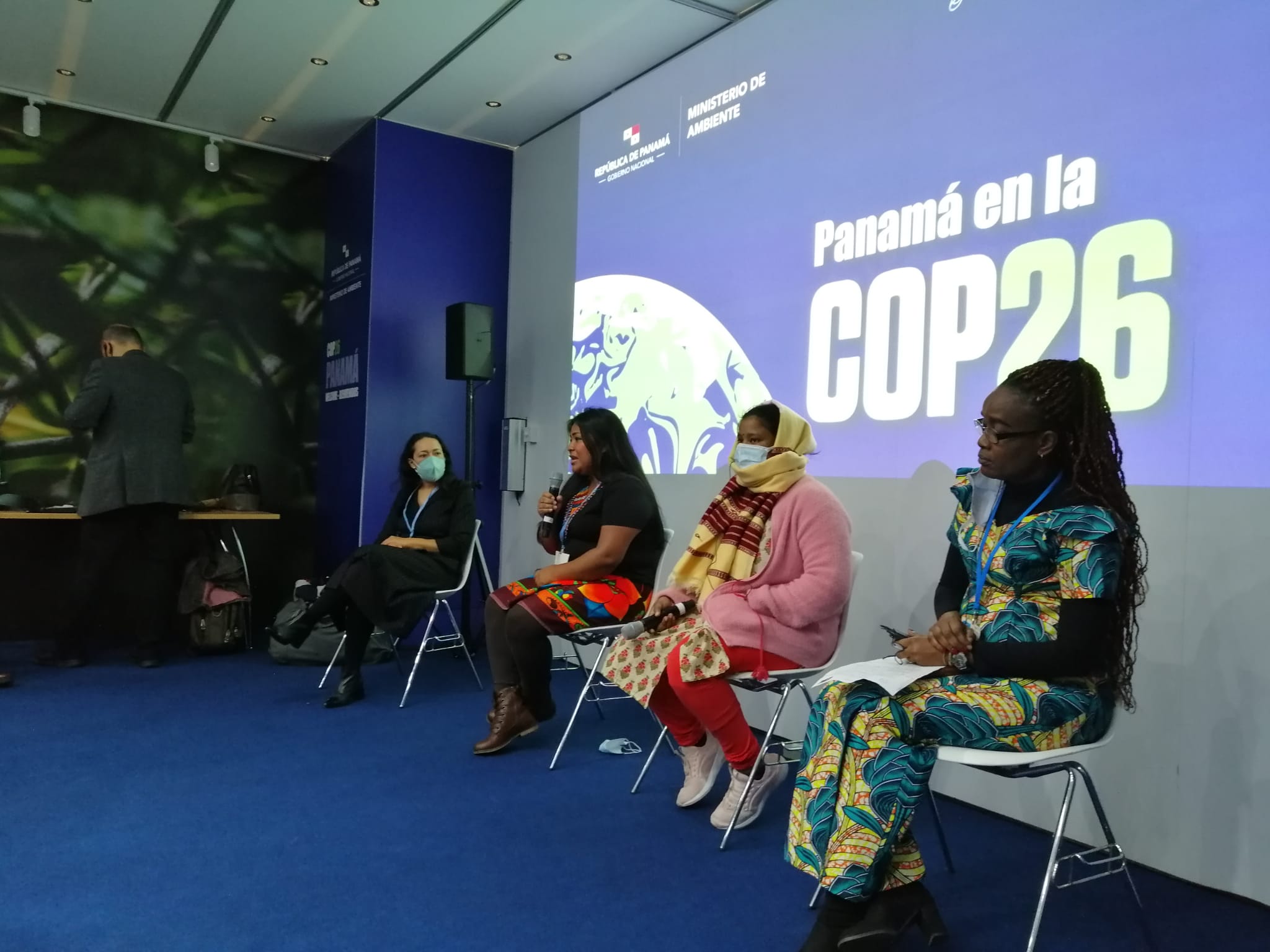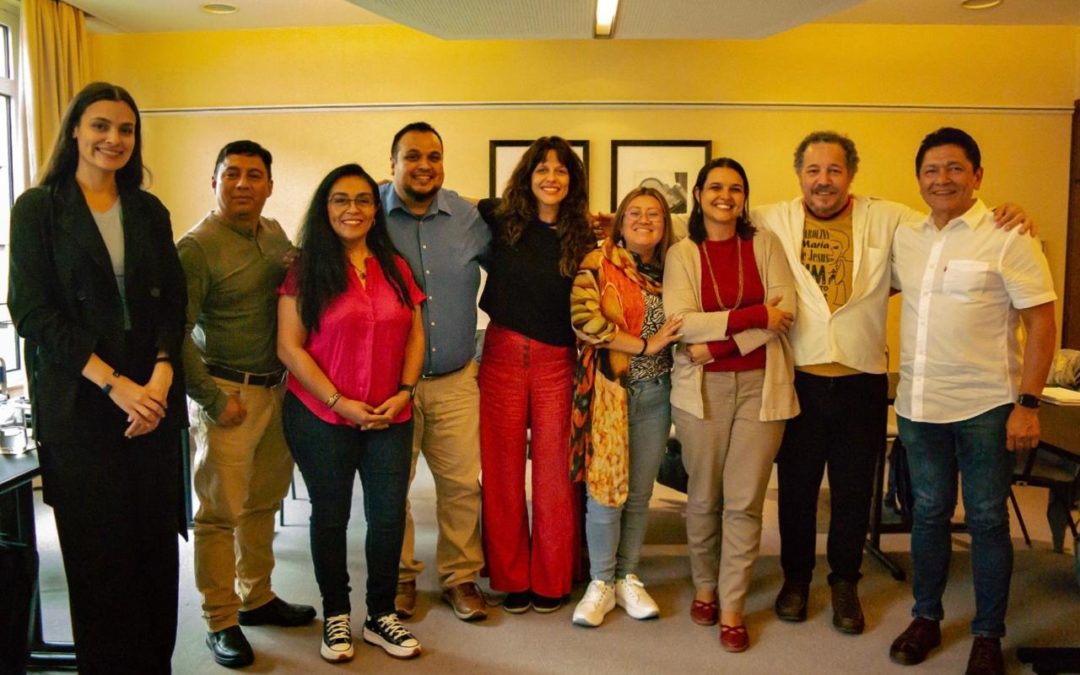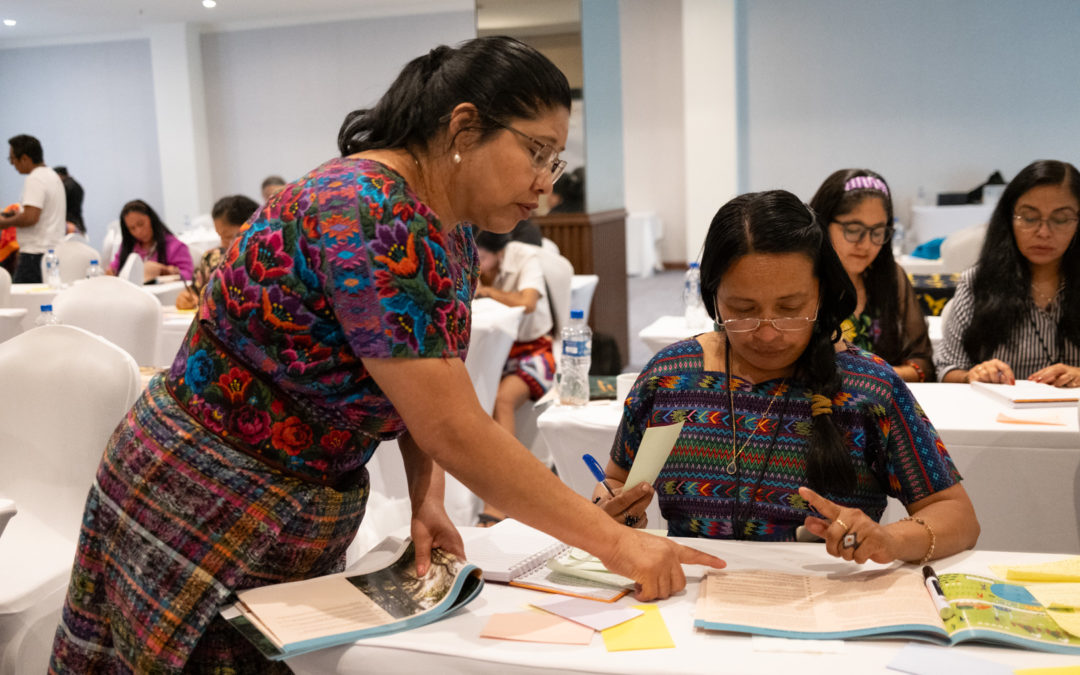The increase in the frequency and magnitude of hurricanes worldwide is causing serious loss and damage to the communities and indigenous peoples of the world. Territorial women are leading actions to mitigate and adapt to these challenges, based on their traditional knowledge.
Within the framework of the United Nations Conference on Climate Change (COP26), the Coordinator of Territorial Women Leaders makes visible the experiences of resilience and disaster management led by women from the original peoples of Mesoamerica, Africa and Asia, in the event “Natural Disasters, Women and Community Governance of Forests”, which took place this November 8th in the Panama Pavilion, Blue Zone.
At the event, the Coordinator also presented the initiative #ResilientWomen: a call to governments of the world to address the loss and damage caused by climate change with a gender perspective.
Measuring loss and damage
The impact of each natural disaster on a community implies the destruction of their homes, the contamination of drinking water sources, loss of crops, seeds and native biodiversity. After the disaster passes, the most affected communities are left with limited resources. It takes months for them to rebuild their houses and be able to harvest their own food again.
The insufficient response of States and international organizations makes humanitarian aid during and after these disasters scarce and late. Communities survive these extreme events by their own resources, knowledge, leadership and community organization. Each community defines measures, assistance protocols, evacuation routes and distributes roles to prepare for and mitigate losses and damages.
Women are in charge of harvesting and preserving food, collecting and storing seeds and medicinal plants, fitting out shelters, cooking, healing the sick and injured during the crisis. Once the disaster passes, they are also in charge of reactivating production systems. Which is an increasingly difficult challenge, as their ecosystems have lost their balance.
For example: with the impact of hurricanes Eta and Iota in the Miskito communities in the Caribbean of Nicaragua, all the large trees fell down, leaving the wild animals with no other food than the seeds and seedlings emerging from the new plantings, which reduces the local food production levels in a significant way. As these communities practice self-consumption agriculture, they were at risk of being left without seeds, after several failed planting attempts. After trial and error, the women devised a new strategy: changing the planting area. While the forest regenerated, they let their usual planting grounds to rest and began growing family gardens near their homes.
Resilient Women
Even in such challenging circumstances, territorial women leaders have found, once again, in the knowledge inherited from their ancestors, the strength and tools to reinvent themselves in the fight to defend their territories and traditional ways of life; joining together, organizing and creating creative response strategies to reactivate traditional forms of food production; which are essential for the good life and the preservation of their cultures.
Some have planted gardens in their homes (where it was easier to control pests), others have created networks and fairs between producers from nearby communities to exchange products, others are in charge of sheltering native seed banks, others learn new techniques to recover soils or vary their cultivation areas to have reserve crops in higher lands.
This is how the #Women Resilents initiative arises, to recognize the good practices devised and lead by community and indigenous women around the world, as they can be an example for other peoples.
At the event, we shared successful experiences of community self-management in Mesoamerica, Africa and Asia in the voices of Sara Omi, Embera Leader from Panamá, specialist in Indigenous law and president of the Coordinator of Territorial Women Leaders of Mesoamerica; Archana Soreng, Member of the Youth Advisory Group to the United Nations Secretary-General on Climate Change; Chouchouna Losale, Territorial Leader of Africa. Natalia González moderated and Solange Bandiaky-Badji, Director of the Rights and Resources Initiative (RRI) commented.
Direct funding with gender focus
In Latin America, indigenous and community women produce 70% of their families’ food. Support for women-led family farming is proven to be effective for the food security of their communities, the creation of local jobs and incomes, and it also helps to prevent migration. These women also play a fundamental role in the protection of forests, since they are the transmitters of the ancestral cosmovision of good living in harmony with Mother Earth.
Governments and international organizations have the responsibility of generating an efficient and direct financing mechanism with a gender focus to reduce loss and damage that is directly related to the impacts of climate change in their communities; in addition to creating measures that support the work of protection, preservation and restoration of the forests that these women leaders carry out on a daily basis, for the sake of life on earth.
Listening to and taking into account the good practices and traditional knowledge of indigenous communities and peoples is essential to define global actions against climate change.



